
15 min lesen
March 26, 2024
What makes the local expertise of German software development companies so valuable? Partnering with a company that has a deep understanding of the local market and culture enables the realization of projects tailored precisely to customer needs. In this article, you will learn about the concrete advantages of working with German software development firms and how they can give your company a decisive edge.
German software development firms can offer tailored solutions that precisely address the needs and desires of the target audience through their deep understanding of the local market and culture. As development partners, they ensure that companies stay close to the market and users through regular market studies and in-depth market knowledge, are always informed about the latest trends, and can seize new opportunities ahead of the competition.
This expertise, combined with the ability to make well-founded decisions, can prevent costly mistakes and enhance business success.
A deeper understanding of the local market allows for the development of products and services that precisely meet the specific needs and desires of the local target audience. This detailed market knowledge enables a company to identify new trends and developments, thus gaining a significant competitive advantage over its competitors. By considering and possessing expertise in local market standards and legal requirements, compliance issues can be minimized.
German developers are well-versed in the local culture. They understand that a general solution that works elsewhere cannot simply be expected to fit in Germany. Such “one-size-fits-all” solutions usually do not work. Developers here pay close attention to what Germans really need and want. With this knowledge, they create software that is perfectly suited for this market – both technically and culturally.
Fluent German language skills facilitate clear communication within the team, with customers, and with stakeholders, minimizing misunderstandings and misinterpretations. Understanding and using local dialects as well as industry-specific jargon further support integration into local business processes and cultures. These foundational skills are crucial for success in a German-speaking environment and help overcome challenges.
German language proficiency opens doors to specific resources and documentation, supporting continuous learning and quality enhancement. Moreover, communication in German fosters trust and loyalty among customers who appreciate local and cultural understanding.
Proximity allows for spontaneous in-person meetings, enabling efficient information exchange and optimizing communication between customers and development companies. By enabling timely coordination and the ability to quickly clarify uncertainties, collaboration is facilitated. An intensive initial phase of collaboration, made possible by the proximity between the client and the software company, lays the foundation for a successful and stable project process.
The advantages of the nearshoring model include:
These advantages lead to seamless project implementation.
Face-to-face interaction in personal meetings during software development has the following benefits:
The nearshoring model in software development offers faster response times due to working in the same time zone. By implementing short development cycles, the team can deliver features, improvements, and bug fixes more frequently, significantly improving adaptability to market changes and the team’s flexibility.
This agile methodology facilitates the processing of customer feedback, allowing new features to be adapted or developed. In critical problem areas, such as production errors, close customer contact enables developers to respond quickly to inquiries, often within hours.
Cultural proximity through geographical closeness facilitates the integration of nearshore software development teams into existing company structures and minimizes cultural differences. Integrating external IT specialists into internal teams can enhance team scalability, which can be particularly beneficial for rapidly growing companies.
The initiative ‘Software Made in Germany’ by the Federal Association of IT SMEs (BITMi) and its quality seals such as ‘SOFTWARE MADE IN GERMANY’ and ‘SOFTWARE HOSTED IN GERMANY’ set global benchmarks in quality and customer satisfaction for German software products.
Software ‘Made in Germany’ is particularly characterized by:
Regular iterations and continuous testing in short development phases, known as sprints, contribute to software quality improvement by detecting and fixing vulnerabilities early. Retrospectives at the end of each sprint promote continuous improvement of the development process and enhance quality and efficiency.
High security standards and the use of modern encryption technologies ensure the protection of sensitive data and trade secrets in German software development. Agile methodologies and iterative development, complemented by early customer feedback, ensure software reliability and minimize the risk of costly errors.
German software development companies use ISO/IEC 15504, also known as SPICE, to assess and improve the quality of their development processes and obtain an internationally recognized certification that documents their development expertise externally.
Assessment according to ISO/IEC 15504 enables companies to:
German software developers rely on agile methods and frameworks to achieve continuous progress through short sprints. This Rapid Application Development (RAD) method fosters motivation and satisfaction within the team. Continuous integration and software deployment are supported by agile practices, leading to more stable and better-tested products.
A wide range of programming languages, including both modern and established ones such as Python, JavaScript, and Java, allows for the optimal adaptation of software solutions to requirements. Modern database technologies like MongoDB and MySQL are used to meet diverse demands in data throughput and query speed.
Custom German software solutions are designed to seamlessly interact with other systems and provide a strategic alternative to standard software. Through custom development aligned with the specific requirements of the German market, companies achieve competitive advantages such as flexibility, increased efficiency, and long-term cost savings while benefiting from the quality and reliability of “Made in Germany.”
Are you looking for a software solution precisely tailored to your needs and meeting high German quality standards? Bitecc is your competent partner for software development “Made in Germany.” Our experts offer individual consulting, extensive market knowledge, and technical excellence to turn your vision into an effective and efficient IT solution. Visit our website at https://bitecc.de/ and let’s lay the foundation for your digital success in Germany together.
In summary, choosing a German software development company offers many advantages. Local expertise, cultural insights, proximity to customers, high-quality standards, and individual support are just some of the aspects that distinguish German software development firms. You benefit from tailor-made IT solutions developed by professionals who understand the specifics of the German market.
To develop software, a project team consisting of various IT experts such as project managers, business analysts, and developers is needed. With their help, the software project can be realized.
Software development involves designing, developing, writing, and improving computer programs for various applications such as web applications, databases, games, and mobile apps. It also includes testing for malfunctions and ensuring functionality, security, quality, and efficiency.
Technical expertise includes comprehensive knowledge, the ability to solve complex problems, well-developed communication skills, and the strength to motivate.
Software development is important because it helps companies become more competitive, bring innovations to market, and ensure secure, productive operations. This allows companies to stand out from the competition and improve customer experiences.
The costs of software development are high because they are influenced by the complexity of functions and the demanding project requirements of the process. This includes expertise, individual customizations, quality assurance, project management, and technologies. Therefore, it should be considered an investment in a highly qualified and complex task.

October 8, 2025
The biomethane sector is entering a decisive phase. Driven by climate targets, stricter regulations, and rising demand for renewable energy, the market is experiencing rapid growth. Yet, this expansion also creates new op...

February 3, 2025
The future of ERP lies in more efficient and flexible business solutions. In this article, you will discover how .NET-based ERP systems help you optimize processes while remaining adaptable. Explore the key benefits and technological advancemen...